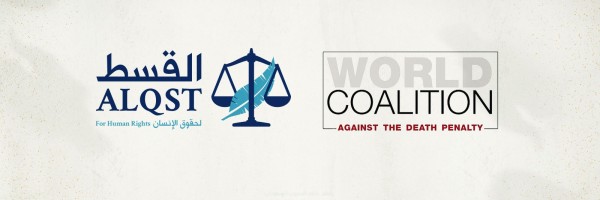The UK general election on July 4 will usher in a new government with a fresh mandate for change, whichever party wins. Among the many pressing issues facing the incoming administration, ALQST will be wanting it to make more robust use of the UK’s close ties with Saudi Arabia to actively promote human rights there, and it calls on UK voters to press their parliamentary candidates for commitments to do so. Here are 10 propositions we urge all supporters of human rights in Saudi Arabia to make to their local candidates in the run-up to the polls.
Find out below how to take part in this campaign
The incoming UK government will face significant challenges both at home and abroad. Among its foreign policy challenges, besides working to help ensure just and lasting peace in Palestine/Israel and Ukraine, will be negotiating the UK’s relationships with authoritarian leaders around the world, including the rulers of Saudi Arabia.
As a close ally of Saudi Arabia, the UK has considerable diplomatic leverage with which to press the Saudi authorities over systemic human rights violations in the country. However, as ALQST mapped out in its 2022 paper A Soft Touch? Human Rights and the UK-Saudi Relationship, the UK has not used this to the full extent possible, and it has not been transparent about the nature and terms of the UK-Saudi relationship.
Ahead of the general election, ALQST is sharing 10 ways in which the incoming government can prioritise human rights in its relationship with Saudi Arabia, to have a positive bearing on the dire situation in the country and avoid the UK becoming further complicit in abuses and helping to entrench impunity.
Take action and write to your local parliamentary candidates
We are urging all UK residents concerned about human rights issues in Saudi Arabia to bring these 10 calls to the attention of their local parliamentary candidates ahead of the election. You can find out which candidates are standing in your parliamentary constituency, along with their email addresses, on Democracy Club's ‘Who Can I Vote For?’ web page by entering your postcode.
We’ve prepared a sample letter for you to use below, as well as modified sample letters for anyone based in Leeds – where detained Saudi women’s rights activist Salma al-Shehab lived and studied prior to her arrest – and Newcastle, whose football club is owned by the Saudi state-owned Public Investment Fund. We encourage you to share any responses you receive with ALQST’s team: contact@alqst.org
- Sample letter for any UK constituents
- Sample letter for Leeds constituents
- Sample letter for Newcastle constituents
Tell your prospective MPs about these 10 ways the incoming government can prioritise human rights in its relationship with Saudi Arabia, and seek their commitment to pursue them if elected
1. Forcefully raise human rights concerns and individual cases
The UK government has long maintained that the close nature of its ties with Saudi Arabia allows it to address sensitive human rights issues “frankly”, and that it does so at all levels. It is not clear, however, how robustly this is done, and it often appears to be heavily outweighed by other considerations.
The UK must show greater resolve to exert public and private pressure on the Saudi Arabian authorities to improve their human rights record and, crucially, raise individual cases of concern, such as Leeds University PhD student Salma al-Shehab facing 27 years in prison for peaceful social media activity, and child defendants at imminent risk of execution.
2. Demand access
An underlying rights issue in Saudi Arabia is the absence of any scrutiny of the authorities. Independent civil society is muzzled and human rights activity is criminalised. There is no independent monitoring of prisons or the courts, where trials are held in secret, and United Nations (UN) experts are denied access to the country.
British consular and embassy officials should continue to request access to relevant trial hearings, such as those involving prisoners of conscience, in support of the right to a fair and open trial, and the new UK government should press the Saudi authorities on the issue of access to the country for international NGOs, parliamentarians, and UN fact-finding missions.
3. Protect Saudi nationals in exile, especially in the UK
Amid mounting repression in recent years, increasing numbers of Saudi citizens have left the country and sought asylum abroad, including in the UK, in order to avoid arbitrary arrest, prosecution and other abuses. Yet even in the UK they often continue to face repression from the Saudi authorities by transnational means including digital and physical surveillance, threats and defamation.
It is essential that the UK meets the growing challenges of transnational human rights violations by Saudi Arabia, including by providing protection for victims and ensuring that they have a secure point of contact to reach out to if threatened. There should also be a parliamentary inquiry into the impact of transnational repression on UK soil.
4. Support multilateral action at the UN
The UK has publicly raised human rights issues in Saudi Arabia at the UN Human Rights Council (HRC), and has signed on to joint statements raising concerns. In addition, the UK participates in the HRC’s peer-review examination of each country, the Universal Periodic Review (UPR).
The UK must follow up on the recommendations made during Saudi Arabia’s latest UPR review, in January 2024, to ensure the Saudi authorities implement them. It should actively support, or ideally initiate, proposals to establish a UN monitoring mechanism with a country mandate to report and advise on human rights in Saudi Arabia.
5. Hold individuals complicit in the murder of Jamal Khashoggi to account
Following the state-sponsored murder of journalist Jamal Khashoggi in October 2018, the UK joined in global calls for accountability. In July 2020, it introduced a Global Human Rights sanctions regime and froze the assets of 20 Saudi officials involved in Khashoggi’s murder. Yet it significantly omitted Crown Prince Mohammed bin Salman, who US intelligence concluded had approved the operation, from the list of individuals targeted for financial sanctions.
More than five years on from the murder, accountability remains elusive, and the crown prince enjoys growing immunity and rehabilitation on the world stage. Sanctioning the crown prince would be a welcome step, but there are also other ways in which the UK could hold senior Saudi officials to account, such as not lending them credibility by extending invitations to visit the UK.
6. Be more transparent about institutional support and cooperation
The UK has a long history of providing security, judicial and military assistance to Saudi government ministries that are widely accused of complicity in human rights violations. The 2014 Memorandums of Understanding (MoUs) the UK signed with Saudi Arabia on modernising the Ministry of Interior and on judicial cooperation, and the notoriously opaque Gulf Strategy Fund (GSF), are shrouded in secrecy.
The UK should be transparent about the nature of this support, starting by publishing the aforementioned MoUs and full information about the GSF programme, and halting funding pending a full and transparent review, as well as subjecting all other current assistance agreements to renewed and rigorous review.
7. Review and tighten export licensing criteria
The UK is one of the world’s biggest arms exporters and has been supplying large amounts of weaponry to Saudi Arabia for decades. The government claims to operate one of the most robust and transparent licensing regimes in the world, yet it issues the majority of its arms export licences through the secretive ‘Open’ system, which obscures the true level of the UK arms trade. In this way it also eases arms sales to countries on the UK’s own human rights priority country list, including Saudi Arabia, which has been responsible for serious violations of international humanitarian law in the war in Yemen.
The new UK government should review and tighten its export licensing criteria, ensuring that human rights considerations are made a priority, and stop granting licences for the export of arms to the Saudi armed forces to prevent further indiscriminate use against civilians.
8. Make new free trade agreements conditional on human rights guarantees
The UK government has sought in recent years, especially since the UK’s withdrawal from the European Union, to increase trade and negotiate Free Trade Agreements (FTAs) with Saudi Arabia and the wider Gulf region. Disturbingly, respect for human rights and the rule of law were not included in the draft Gulf FTA’s list of objectives. Meanwhile, UK companies involved in the construction of Saudi Arabia’s $500 billion futuristic megacity Neom have not been disclosing how they have assessed the human rights risks, such as land seizures and forced mass evictions of local residents, posed by their participation in the project.
The UK must write clear commitments to the rule of law and international human rights standards into the objectives of any Free Trade Agreement it negotiates with Saudi Arabia and the other GCC states.
9. Subject existing and proposed foreign investments to thorough scrutiny
In recent years, Saudi Arabia’s Public Investment Fund, as well as various princes and businesses close to the Saudi state and leadership, have purchased substantial shares in a wide range of UK companies, property, and projects in sectors including energy, telecommunications, the media and sport. Some of these investments, not least those in media institutions, such as The Independent newspaper, and Newcastle United Football Club (mentioned below), have the potential to support Riyadh’s global public relations campaign and make the UK potentially more dependent on the kingdom, and therefore less inclined to criticise its human rights abuses.
The new UK government should use recent legislation such as the 2021 National Security and Investment Act to subject proposed foreign commercial and investment deals to robust scrutiny, particularly those with significant public interest considerations such as the acquisition of media outlets.
10. Ban state ownership of football clubs
The trend towards foreign state ownership of English Premier League clubs not only damages the integrity of the game of football – by facilitating the growth of multi-club ownership, for instance – but also grants foreign states undue political, social, and cultural influence and cover for grave human rights abuses. The purchase of Newcastle United FC by Saudi Arabia’s state-run Public Investment Fund in 2021 was widely seen as one such example.
The UK’s Football Governance Bill makes welcome efforts to improve the regulation of football, yet clause 37 facilitates takeover attempts by foreign states and reduces efforts to hold state-owned clubs accountable. We urge the incoming government to remove this clause from the bill when it comes back to Parliament, and explicitly prohibit state ownership of English clubs.
Don’t forget to tell ALQST contact@alqst.org how your local candidates respond!




